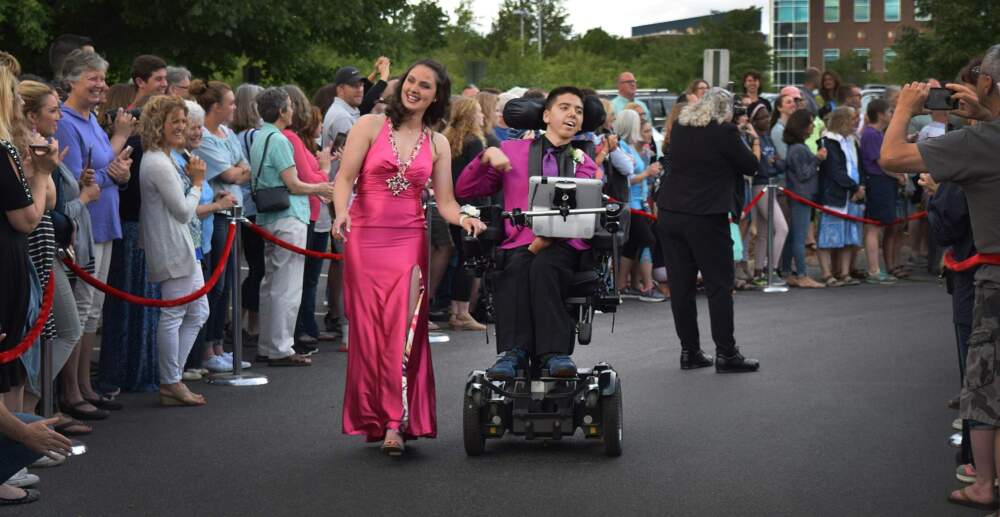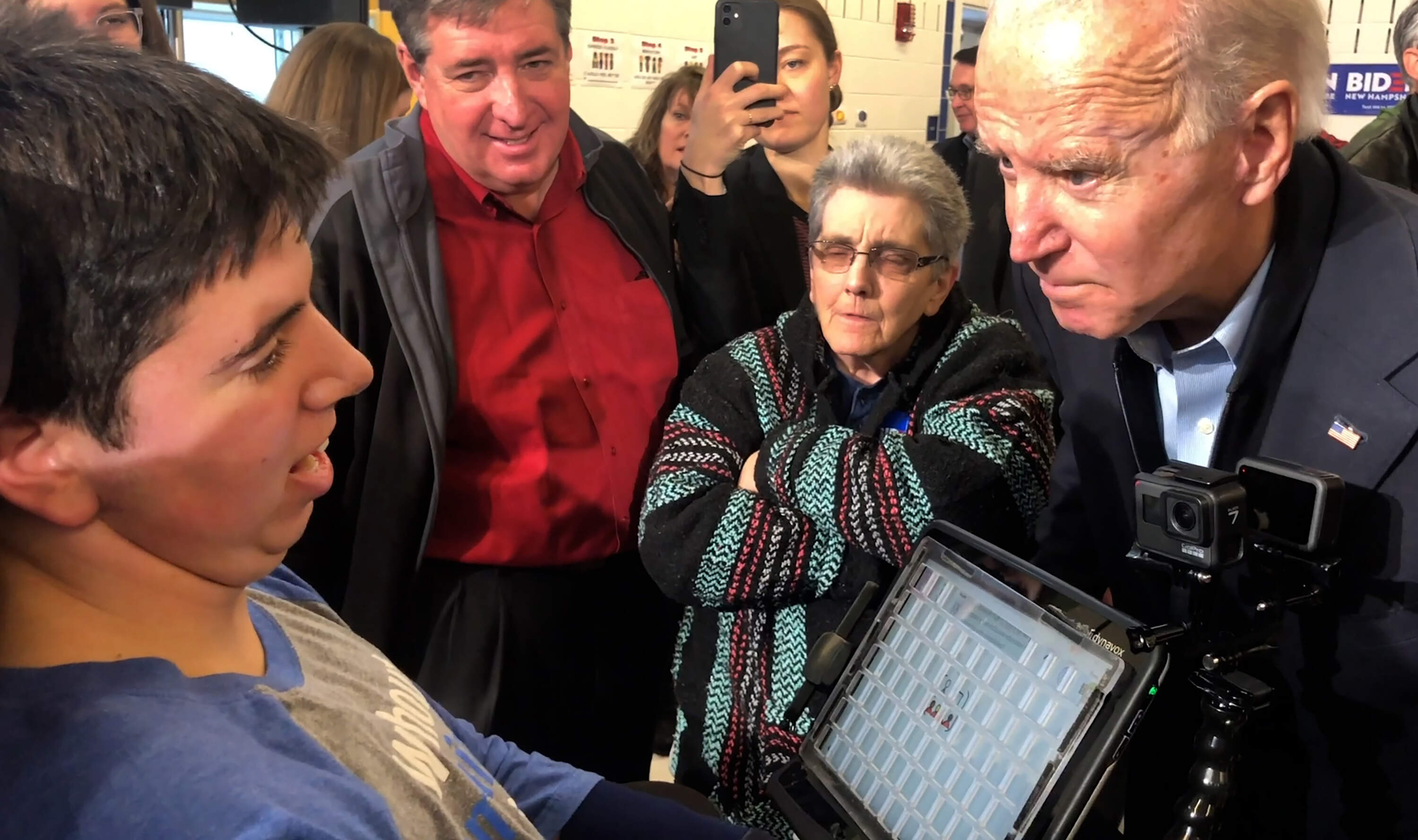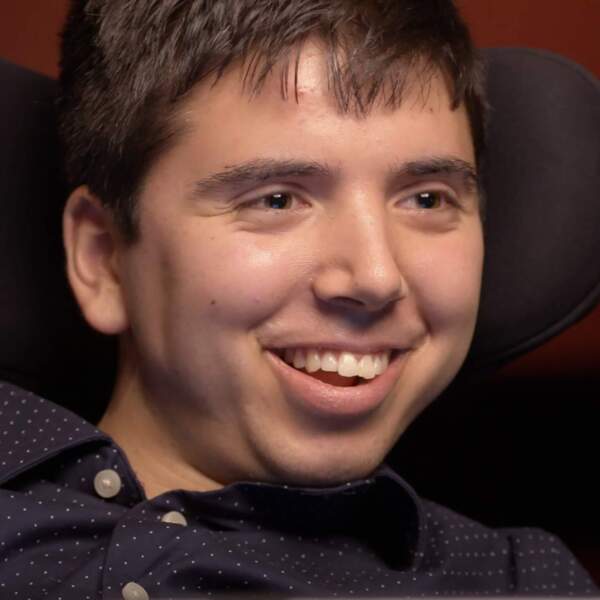Advertisement
Commentary
There’s no roadmap for being an adult with a disability. So I’m making my own

I have lived in Concord, New Hampshire my whole life. It’s a welcoming community. It’s probably the most wheelchair-accessible city in New England, and the schools are pretty inclusive for students with disabilities.
Which is good because I’m a wheelchair user, and I’ve had a movement disorder, epilepsy and a swallowing disorder since I was a little kid. When I was 19, I found out through genetic testing that my disabilities are caused by GNA01 neurodevelopmental disorder. Only about 300 people in the world have been diagnosed with this disorder.
I can’t read very well: My eyes jump around too much. I learn by listening and watching. I was always in general education classes, and my schools tried to make sure all of my books and assignments were either on audio or read out loud.
Being included in regular classes really made a difference in my education and social life. I learned the general curriculum. I played Unified Sports and was part of the school TV station. I did the Red Sox and New England Patriots report each week. I was also on the yearbook staff and the school newspaper. I graduated from Concord High School in 2018 with a high school diploma.
But then things felt confusing after I graduated. I wanted to go to college. Date. Get a job. Live on my own.
But no one tells you how to be an adult, let alone an adult with a disability.
I felt stuck. And lonely. And my health is so unpredictable. One minute I can be getting dressed for the day, and the next minute my body can go into crisis and I’m racing to the emergency room.
How do I do this adulting-while-disabled thing?
I suggested an idea to my dad, who is a filmmaker. How about I interview badass adults with disabilities about their transition to adulthood?
I wanted to talk to disability activists like Judy Heumann, Bob Williams and Keith Jones, people I have looked up to for years. I also reached out to advocates, like Ali Stroker, Maysoon Zayid, Andrew Peterson and Lydia X.Z. Brown. How did they find their roadmaps?
I knew they’d all be honest and tell it like it is. I hoped they could be my mentors. My dad and I filmed these interviews all around the country for the past three years and made The New York Times Op-Doc "My Disablity Roadmap," which won a documentary Emmy award this fall. And I’ve been filming my own life from my perspective with two Go Pro cameras mounted on my wheelchair.
I learned from my mentors that it’s not easy to be an adult with a disability. But one of the best pieces of advice I got was from Zayid, a comedian and actor. She said, “You are not alone. Find your community.” Connecting with the disability community has helped me feel much more confident in myself.
My mentors have empowered me to stand up for myself, especially when someone talks down to me like I’m a 3-year-old. It even happened with President Joe Biden.
I asked him how he would support more inclusive education for disabled students. "You should be integrated into all of the classes," he said.
Advertisement
And then he stroked my face. The video of the moment went viral.

If someone speaks to me that way now, I will tell them to treat me like the 24-year-old that I am. I will tell them to be patient and do not talk down to me. Ask me how I best communicate. Slow down the pace of the conversation to create more space for me to contribute. If you don’t understand me, ask me to repeat what I said. If I’m typing on my device, don’t start another conversation. Please wait for me to finish.
I want to use our films to let everyone know that people with disabilities demand respect and rights. And I want other young adults with disabilities to have the same opportunities that I've had for health care, inclusive education, college, assistive technology, jobs, making friends and independent living.
When they see our next film, "The Ride Ahead," I hope that the millions of young adults with disabilities will feel more seen, and find their own mentors. I can’t wait to see how "The Ride Ahead," a full-length version of "My Disability Roadmap," changes the people who watch it.
These days, I go to NHTI Community College. I work as a filmmaker and public speaker. I earn money and live in my own place.
I’m still working on finding a girlfriend. But as one of my mentors, Ali Stroker, told me, I have to have ninja patience.

